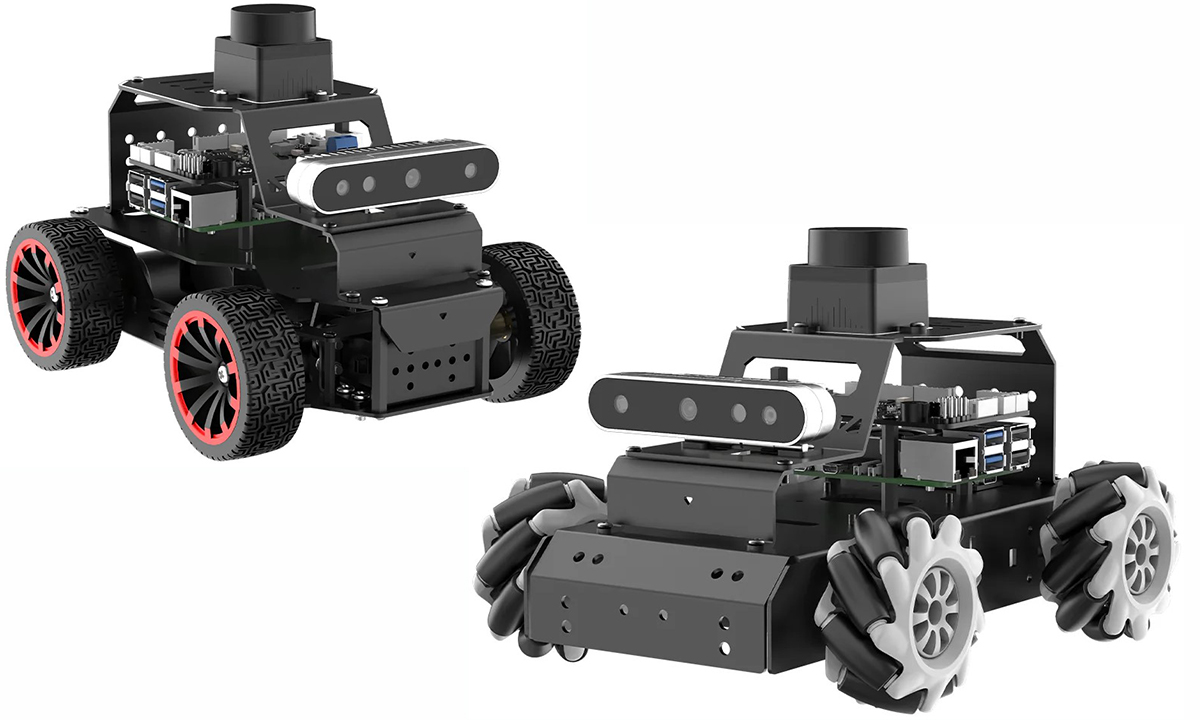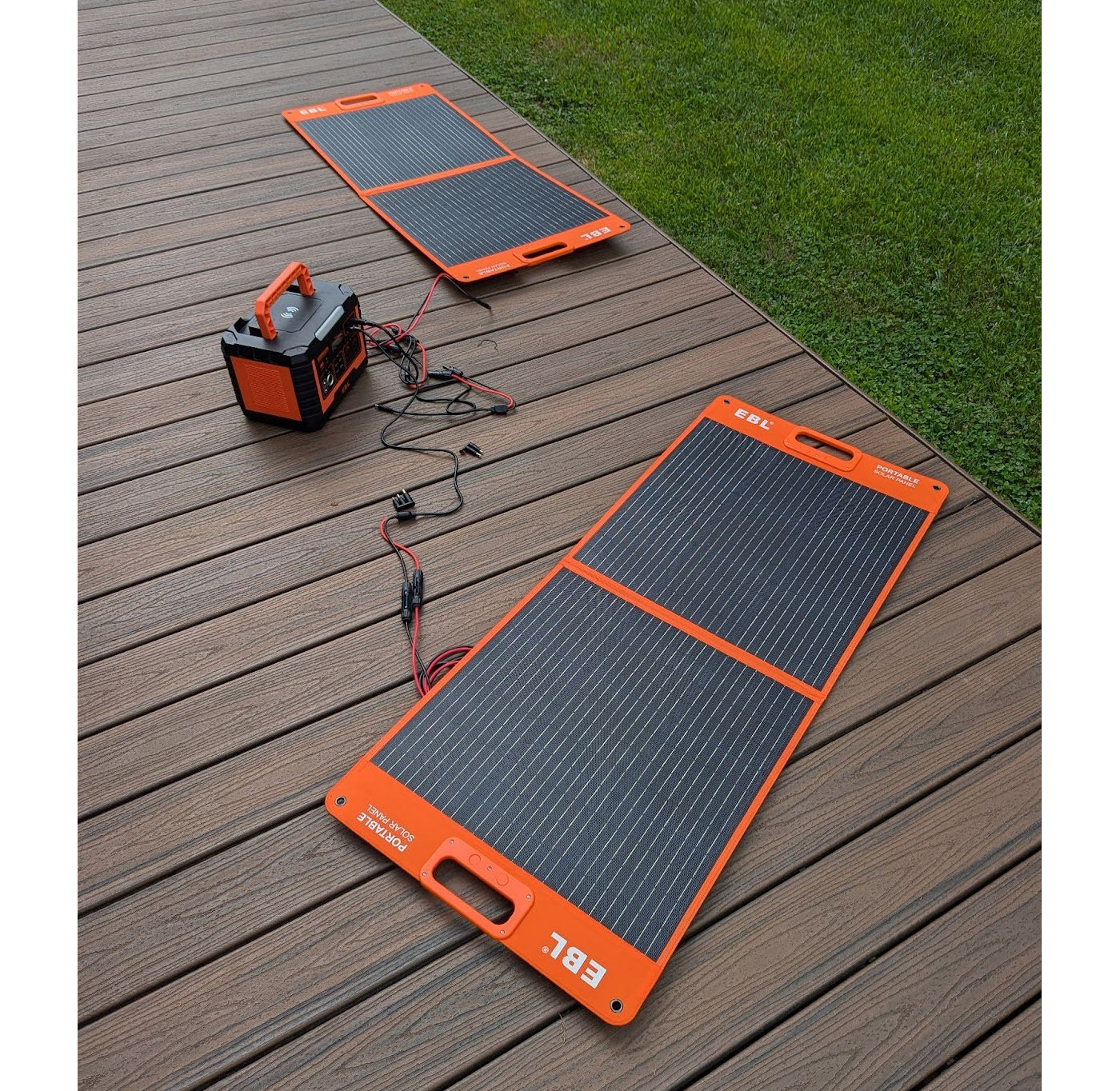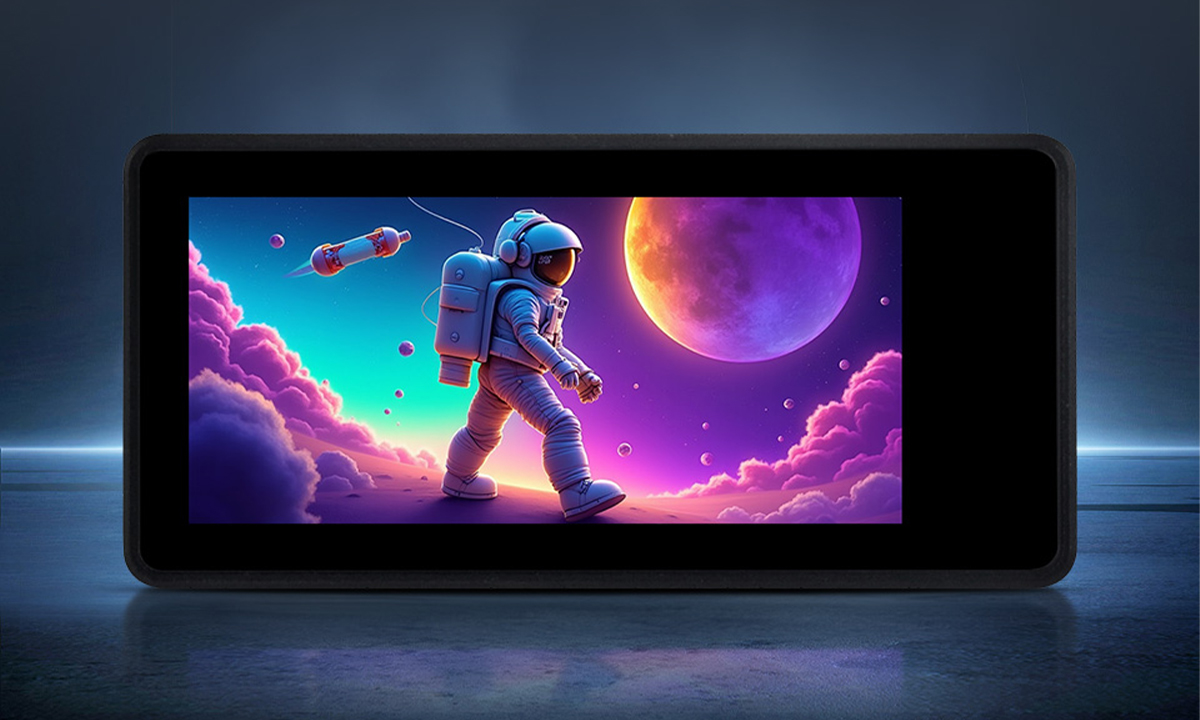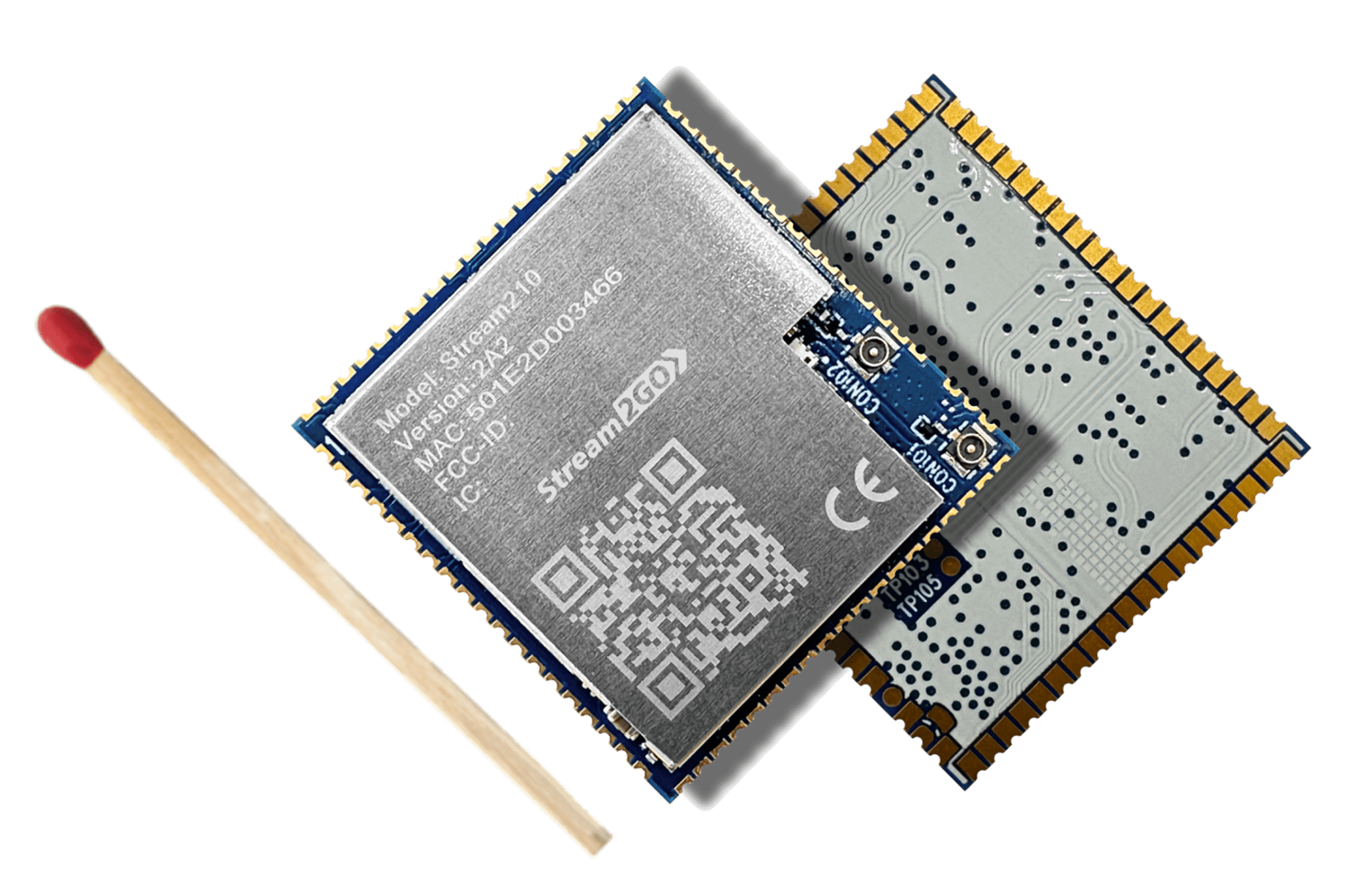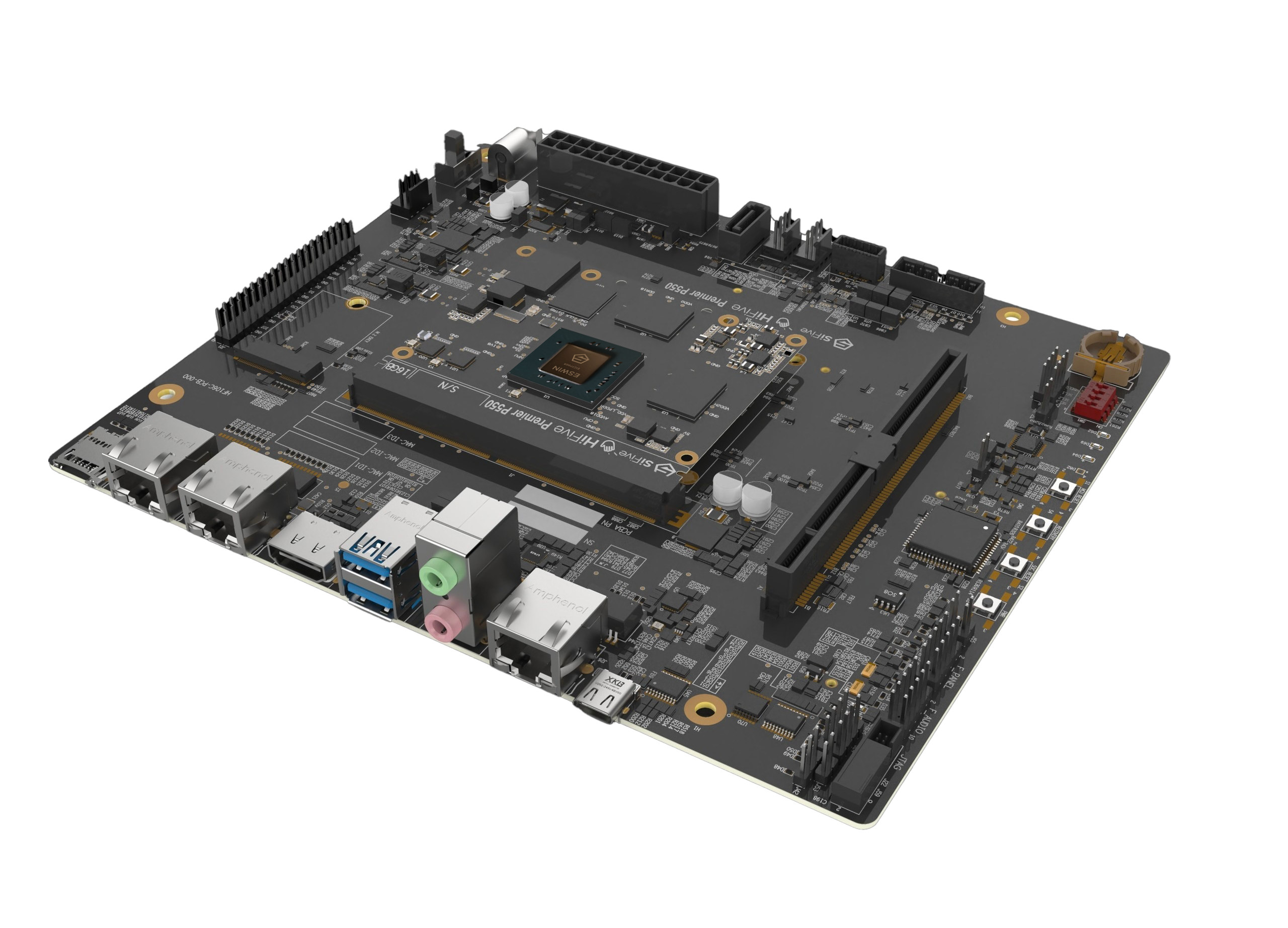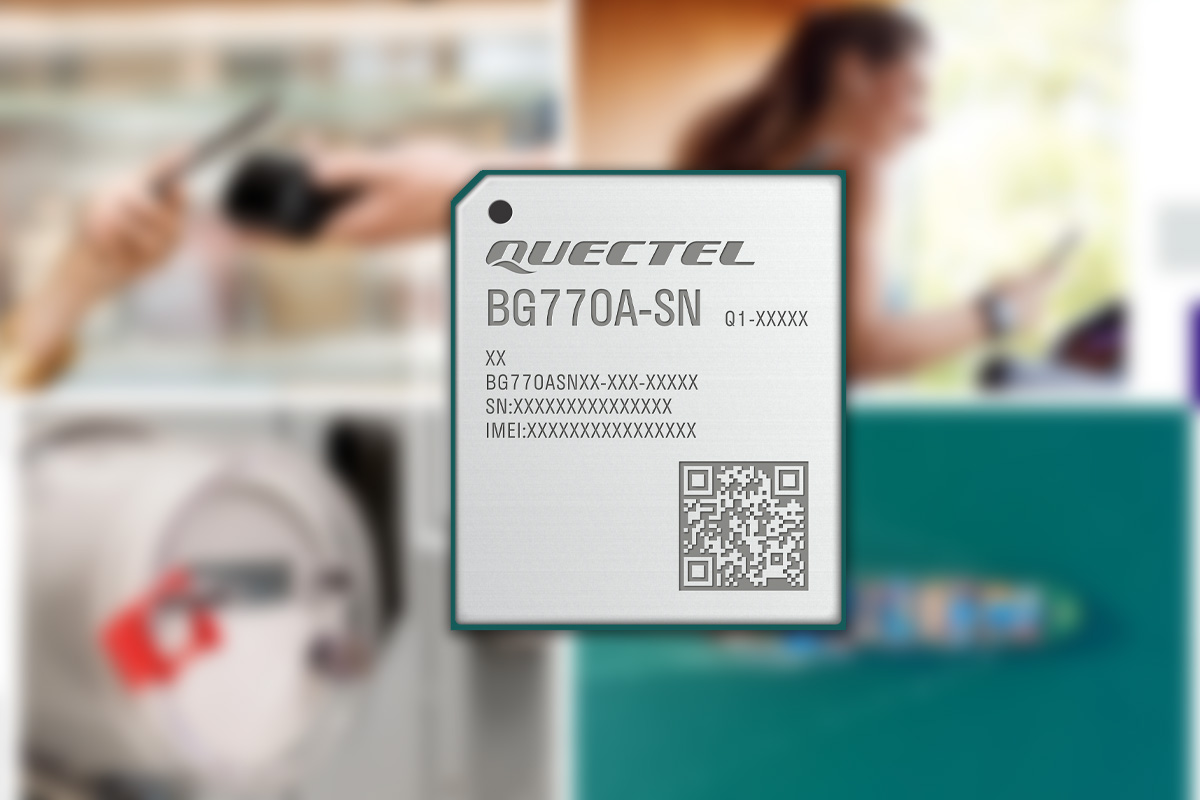MentorPi is a ROS2-compatible robot car powered by the Raspberry Pi 5, designed for AI-driven robotics and Python programming. It offers two chassis options: MentorPi-M1, which features a Mecanum-wheel chassis, and MentorPi-A1, equipped with an Ackermann chassis. Both variants come with high-performance components such as closed-loop encoder motors, STL-19P TOF lidar, 3D depth cameras, and high-torque servos. These enable precise navigation, SLAM mapping, path planning, and dynamic obstacle avoidance, making MentorPi an ideal platform for robotics tasks. The system utilizes a dual-controller architecture to optimize performance. The Raspberry Pi 5 handles AI vision processing and strategic functions, while Hiwonder’s RRC Lite expansion board manages motion control and sensor data processing. This task distribution enhances efficiency in machine vision, AI-powered navigation, and robotic control, allowing MentorPi to tackle complex AI and vision-based applications with ease. MentorPi also supports advanced features like 3D visual mapping and YOLOv5-based object detection for recognizing road […]
EBL MP1000 Review – A 1000W portable AC/DC power station with solar panels
Hey, Karl here and I am getting old. I guess middle age is more accurate. Two wonderful kids and I want to stick around for a while. I have not been feeling well and as a result, I picked up strength training as a form of exercise. I started with an adjustable bench and a set of adjustable dumbbells. I trained with them for about 3 months in my office. I had just enough space. I was hooked. I dove in and learned as much as I could on current best practices, and developed a spreadsheet for tracking progress. I started to outgrow the 55lb/25kg adjustable dumbbells with several exercises and the next step was a squat rack, bar, and Olympic weights. My problem was the lack of space. I had a building that was poorly organized. After a bit of organizing, I was able to carve enough space for […]
ESP32-S3 board features 1.91-inch AMOLED display and QMI8658 6-axis motion sensor
Waveshare has launched an ESP32-S3 1.91-inch AMOLED development board with a 6-axis motion sensor designed for the rapid prototyping of IoT and portable projects with interactive displays. The board is built around the ESP32-S3R8 chip, featuring a 32-bit LX7 dual-core processor running at up to 240MHz, with integrated 2.4GHz Wi-Fi and Bluetooth BLE 5. It also includes 16MB Flash, 8MB PSRAM, 512KB SRAM, and 384KB ROM for efficient processing and memory management. At the core of its display capabilities is a 1.91-inch AMOLED screen with a 240×536 resolution, supporting 16.7 million colors. Powered by the RM67162 controller and connected via the QSPI interface, the display is ideal for running GUI applications like LVGL. The board is available in both touch and non-touch versions, with the touch-enabled models using the FT3168 touch IC. Other features include a QMI8658 6-axis IMU, a microSD card slot, and a Lithium battery header. The ESP32-S3 […]
PCBWay’s 7th project design contest – Win prizes for your electronic, mechanical, or STM32 project (Sponsored)
PCBWay has launched its 7th project design contest in collaboration with Mouser with three categories, namely electronic project, mechanical project, and STM32 project. PCBWay’s design contests aim to encourage participants to engage in open-source innovation projects and inspire more people to join the electronics community. This year’s contest is no different and even adds the new STM32 project category to attract even more entrants. There are three phases in PCBWay’s 7th design contest: Project Release – September 2, 2024 – January 19, 2025 Project Review – January 20, 2024 – February 28, 2025 Result Announcement – March 10, 2025 The contest started last month, but you still have plenty of time to enter before January 19, 2025. As noted in the introduction three categories are available. Here are a few more details about these: Electronic project – Everything about electronic design, from simple circuits to advanced MCU and IoT projects, […]
Realtek Ameba RTL8730E Cortex-A32 audio streaming module offers a cost-effective solution for wireless audio applications
StreamUnlimited and Realtek Semiconductor Corp have collaborated on the Stream210 audio streaming module based on the Ameba Smart RTL8730E Arm Cortex-A32 chip from the Ameba E series, with support for Wi-Fi 6, Bluetooth 5.3, and Matter for edge computing and IoT solutions. We have looked at previous Ameba IoT products, such as the Ameba RTL8722DM development board, Ameba Arduino, Ameba RTL8195AM module, and the Ameba RTL8710BN. The Ameba Smart chip is the first entry in the series to feature a Cortex-A32 processor. The Stream210 module is aimed at various audio and IoT applications, including digital radios, streaming audio receivers, wireless speakers, smart speakers, home automation products, and Wi-Fi headphones. Other wireless audio modules we’ve covered in the past include the Up2Stream Pro HiFi board, TTGO T9, and 8devices’ Tobufi module. Stream210 specifications: SoC – Ameba Smart RTL8730E dual-core Arm Cortex-A32 processor @ 1.3GHz Memory – 2Gbit RAM Storage – 2Gbit […]
HiFive Premier P550 mini-DTX motherboard features ESWIN EIC7700X RISC-V AI SoC, up to 32GB DDR5, a PCIe x16 slot
SiFive HiFive Premier P550 is a mini-DTX (203 x 170mm) motherboard powered by a 1.4 GHz ESWIN EIC7700X quad-core RISC-V SiFive P550 SoC with up to 19.95 TOPS of AI performance, and equipped with up to 32GB LPDDR5 memory and a 128GB eMMC flash all soldered on a system-on-module. The motherboard itself features a SATA III connector for data storage, includes an HDMI 2.0 port for 4K video output, a PCIe Gen3 x16 slot (working at x4), two gigabit Ethernet ports, an M.2 Key-E socket to add a WiFi/Bluetooth card, up to five USB interfaces, and more. HiFive Premier P550 specifications: SoC – ESWIN EIC7700X CPU 4x SiFive Performance P550 RV64GC RISC-V cores @ 1.4GHz (up to 1.8GHz when overclocked) with Cortex-A75-class performance 32KB(I) + 32KB(D) L1 Cache 256KB L2 Cache 4MB shared L3 Cache Cache supports ECC (support SECDED) NPU (Not currently supported in software) – Up to 19.95 […]
Get the Creality Falcon2 Pro 40W laser engraver at a discount and gifts for Halloween (Sponsored)
Creality has just launched a Halloween sale for its laser engravers and accessories with up to 53% off and free gifts with a highlight of the promotion being the Creality Falcon 2 Pro 40W laser engraving machine. Creality Falcon2 Pro 40W highlights As noted in our previous article about the Falcon 2 Pro 40W, the laser engraving machine focuses on safety with a fully enclosed design, class 1 safety certification, systems for airflow, lens, and flame monitoring, and five safety protections namely bidirectional limit switches, an active stop function, a security lock design, an emergency stop button, and a laser protective cover. So you can carve or cut your Halloween pieces with your kids without having to worry. While safety is a priority, the Falcon2 Pro 40W is also a very capable and features-rich machine with a powerful 22W or 40W laser module, a built-in top camera for accurate alignment […]
Quectel BG770A-SN industrial IoT module offers 5G, NB-IoT, and NTN satellite connectivity
Quectel has recently released the BG770A-SN industrial IoT module which comes in an ultra-compact form factor and supports both NTN and TN and features GNSS for positioning functionality. This 5G-ready module also supports iSIM and utilizes the GEO satellite constellation for worldwide coverage. Additionally, the module offers integrated security elements (ISE) and can operate in between the industrial temperature range of -40°C to +85°C. Previously we have written about the Quectel BG95-S5 5G NTN + LTE IoT module which supports NTN satellite (L-band and S-band) plus LTE Cat M1, Cat NB2, and eGPRS as fallback options, designed for applications where continuous connectivity is critical. We have also written about the Quectel CC660D-LS IoT-NTN module, which is an IoT NTN module designed specifically for Skylo’s satellite network. The new BG770A-SN module is a little different from the previous two because it supports LTE Cat M1, LTE Cat NB1/NB2, and NTN over […]


